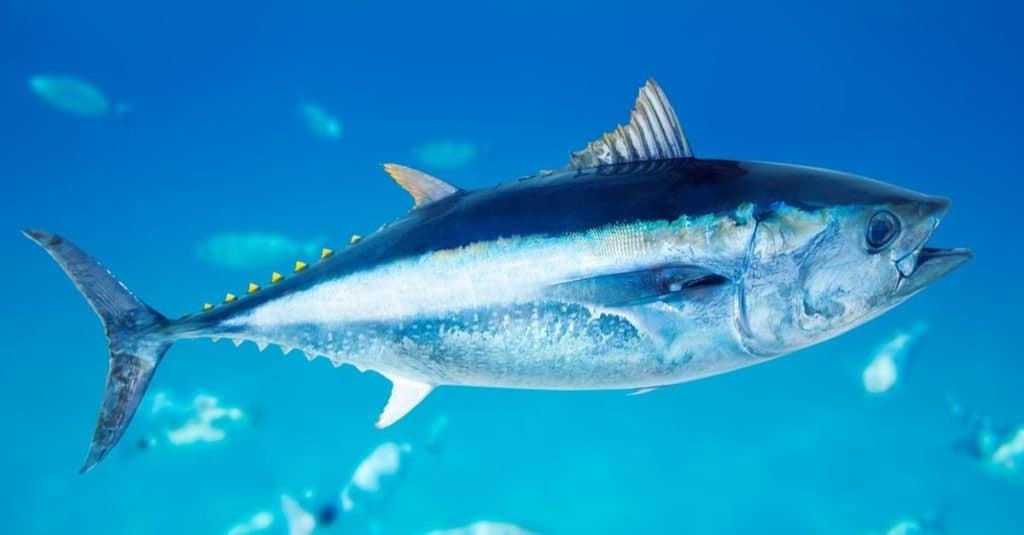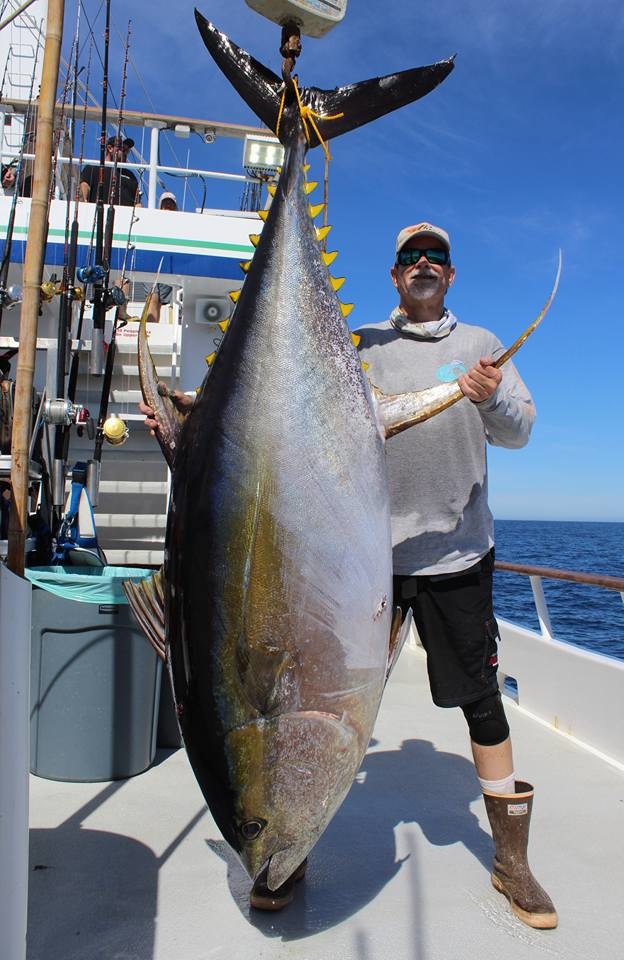
Northern bluefin grow slowly compared with other tunas and billfish but can reach more than 450cm in length and 680kg in weight with a maximum age of approximately 40 years. In the Mediterranean, bluefin tuna is assumed to mature at approximately 25 kg (age 4), whereas in the Gulf of Mexico in the West Atlantic, maturity occurs at approximately 145 kg (age 9).

Interestingly, life history characteristics differ greatly between them. Despite poorly understood movements from east to west, a distinction in populations is made between the two regions.

historical ranges concluded that Atlantic bluefin tuna has shown range contractions of 46% since 1960 - more than any other pelagic species. Despite this thermal tolerance, a recent analysis of present vs. Able to tolerate both warm and cool temperatures, bluefin tuna range throughout the entire north Atlantic and adjacent seas, (primarily the Mediterranean Sea) and can frequent depths to 1000m. They are large, oceanic fish and are seasonally migratory, some making trans-oceanic journeys. Tuna belong to the mackerel family, Scombridae. In 2021, 1.3 tonnes of Atlantic Bluefin tuna was landed to Cornish ports with a value of over £4000.

We hope that this newly opened fishery is well managed and rules are strictly enforced as this is a top predator that is very easily over fished and has only recently recovered from the brink of near extinction. Fish have to be carefully handled and released alive and it is illegal for tuna to be retained and landed by anglers. A sport fishing Catch and Release programme has been established but anglers have to be licenced to target blue fin tuna. Bluefin tuna are known to be accidentally caught in fishermen’s nets particularly when ring netting for sardines. From 2021 the UK government allowed commercial fishermen who accidentally catch bluefin tuna to land one fish per day per boat and they can be sold for human consumption. Bluefin tuna appear in Cornish waters in mid-summer and are seen well into autumn. The return of this incredible species is most likely due to the increase in their prey in our waters, small pelagic fish such as sardines. Atlantic bluefin tuna began reappearing in UK coastal waters in 2014 and since then they have been regularly sighted in increasing numbers around the coasts of Cornwall, and further along the south coast into Devon and Dorset waters. Thanks to improved international management stocks appear to have started to recover. Last year, a giant bluefin tuna fetched a record $396,000 (251,000) in auction at the world's largest wholesale fish market in Tokyo, Japan.Atlantic bluefin tuna are a fast simming and wide ranging species that has always occasionally ventured into UK waters but they became an extremely rare sight through the latter half of the 20th century when this higly valuable species was fished near to extinction. Mark Nobilo, president of Muriwai Sports Fishing Club, said: 'It's pretty awesome, pretty special, especially for our little club.'

Just days later, Mr Adam's friend Alan Langdon reeled in a 358kg black marlin near Ahipara on the west coast. The Pacific bluefin was not the only prize-winning catch of the 2012 New Zealand Sport Fishing Council National competition. He is hoping his wife Lisa will allow him to hang up a cast that is being made of his jaw-dropping catch which was towed back to shore and shipped off to a chiller.īut she may take some convincing, having already said that 'it will be like mounting a sofa' onto a wall in their lounge. The 42-year-old angler and member of Muriwai Sports Fishing Club caught the monster fish near Houhora, off the east coast of the country's North Island. He said the fish was 'pretty hard' to reel in because the line 'was right on the point of the line breaking'. 'It was pretty cool because when I first started fishing my dream was to catch a bluefin tuna exactly like that,' said Mr Adams. The Pacific bluefin weighed in at more than 335kg - and if approved by the International Game Fish Association it is the largest of its kind ever snapped up on a rod and reel.īut what makes the catch even more of a feat is that Nathan Adams caught it from a six-metre tin boat. A fisherman is waiting to hear if he has reeled in a new world record after catching a whopping tuna fish in New Zealand.


 0 kommentar(er)
0 kommentar(er)
